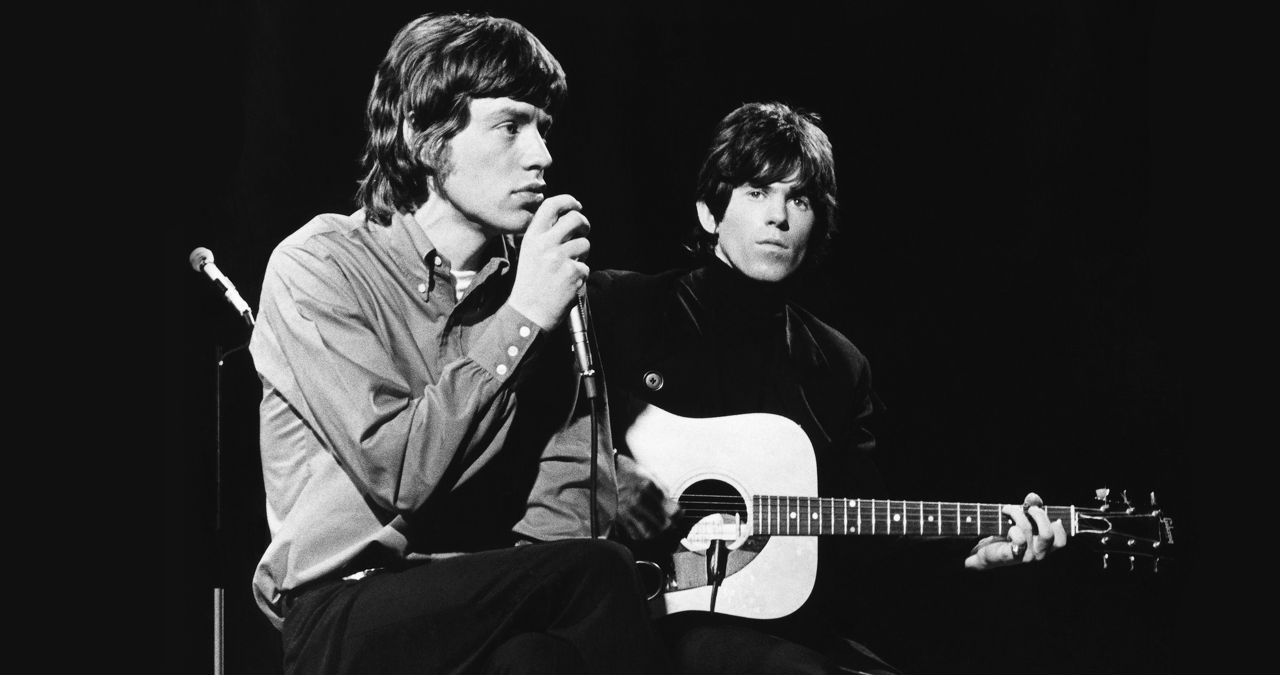“I see songwriting as having to do with experience - the more you've experienced, the better it is”: How the Rolling Stones drew on their own - and imagined - lives for songwriting inspiration
For some, songwriting is all about honesty and injecting lived experience into the lyrics, yet as Mick Jagger will tell you, sometimes you have to play fast and loose with the truth

They set the template for the classic rock band, but it was the Rolling Stones’ knack for songwriting that really underpinned what became some of the 20th century’s most recognisable music. Though revered by most, some tend to overlook their aptitude in the songwriting domain - stacking them unfavourably against their prolific contemporaries, the Beatles and the Kinks.
But The Stones’ golden streak (debatably) ran longer, with certified classic albums such as Exile on Main Street and Sticky Fingers constantly ranking high in those greatest ever lists.
The band’s most swaggering and vital rock ‘n’ roll cuts sounded the starting gun for what would follow over ensuing decades. Yet, the likes of Jumpin' Jack Flash, (I Can’t Get No) Satisfaction, Start Me Up and their ilk often belie the band’s equal form when it came to crafting some of the most heart-rending ballads of the ‘60s and ‘70.
There’s the bitter despair of Angie, the yearning commitment of Wild Horses and the heartbroken resignation of Ruby Tuesday. Then there’s arguably the band’s finest ever moment - the tornado-like Gimme Shelter. Set amongst a backdrop of civil unrest (and prominently featuring American soul singer Merry Clayton), it’s less a song and more the sound of rock’s then most outrageous band reaching outwards to document something more profound - and soundtracking an era of colossal social change.
In an interview with Rolling Stone magazine, back in 1985, Mick Jagger opened up about his philosophy on songwriting; “I see songwriting as having to do with experience, and the more you’ve experienced, the better it is. But it has to be tempered, and you just must let your imagination run.”
Jagger pointed to the first song that he and Keith Richards wrote together - the melancholy As Tears Go By (made famous by Mick's former girlfriend, the late Marianne Faithfull), as a prime example of this.
“You can’t just experience something and leave it at that. You’ve got to try and embroider, like, any land of writing. And that’s the fun part of it. You have this one experience looking out of a window, seeing children. Well, you might not have felt anything, but then you just let your mind drift and dream, and you imagine an older person doing that. You put yourself in their point of view, and you start to write other things, and all this is a very subconscious thing. Out of that comes a mature thought, out of a young person.”
Jagger’s perspective here should give any songwriter pause for thought. If we’re attempting to write autobiographically, just how truthful should we be?
It’s not uncommon for many artists, writing ostensibly personal songs to mythologise and romanticise events, emotions, sensations and places to shape a point, or try to say something about themselves. Even if the conscious intention was to be as honest as possible.
It’s a human being thing, we just can’t help but dig out and emphasise meaning in our own personal narratives. As songwriters, it's best to acknowledge this tendency we all share, and try to balance out the more honest, autobiographical elements via some concessions to artistic license.
The young Jagger made a point of ‘embroidering’ real situations he lived through, and emphasising or exaggerating aspects of his personality and memories when songwriting. As Mick states, the very idea of wisdom is built upon lived experience.
But, if Mick hadn’t been through it himself, he’d consciously imagine he had…
“I was reading [Alexander] Pushkin,” Jagger continued, in the same Rolling Stone interview, “…and his stories are autobiographical. But not totally, because he was never in Siberia - but his friends were, so he uses it. You use your own experience, and then you spice it up with your friends’ observations and your imagination.”
Want all the hottest music and gear news, reviews, deals, features and more, direct to your inbox? Sign up here.

Jagger’s instruction then, is to use your real life experience and feelings as the song’s bedrock - after all, it’s important that you have a personal stake in what you’re making - and then try filtering your perspective through the eyes of another observer. It might just enhance the emotional resonance of your song.
Being a bit more literary about songwriting in this way doesn’t just affect how you write lyrics. Making grandiosity out of the mundane can be a rewarding creative endeavour even if you’re working solely in sound.
In the world of music-making, those tracks that are based on your past experiences - memories of people, places and times long gone - can be rendered hugely cinematic, painted in widescreen and using bold emotional colours.
You can choose to view your own experiences through the perspective of another character (real or imagined) and re-locate those events into dream-scapes, other countries or other worlds.
With songwriting, or music-making, the level at which you can embroider is huge. Just as long as you hold on to the truth of that core emotional thread, you can maintain your authenticity, just as Jagger did. Balancing sincerity with artistry.
It’s a point of view that another great songwriter, Paul Simon, espoused when interviewed for the (highly recommended) book Songwriters on Songwriting in 2003. Simon said, “It's very helpful to start with something that's true. If you start with something that's false, you're always covering your tracks. Something simple and true, that has a lot of possibilities, is a nice way to begin.”

I'm Andy, the Music-Making Ed here at MusicRadar. My work explores both the inner-workings of how music is made, and frequently digs into the history and development of popular music.
Previously the editor of Computer Music, my career has included editing MusicTech magazine and website and writing about music-making and listening for titles such as NME, Classic Pop, Audio Media International, Guitar.com and Uncut.
When I'm not writing about music, I'm making it. I release tracks under the name ALP.
You must confirm your public display name before commenting
Please logout and then login again, you will then be prompted to enter your display name.

